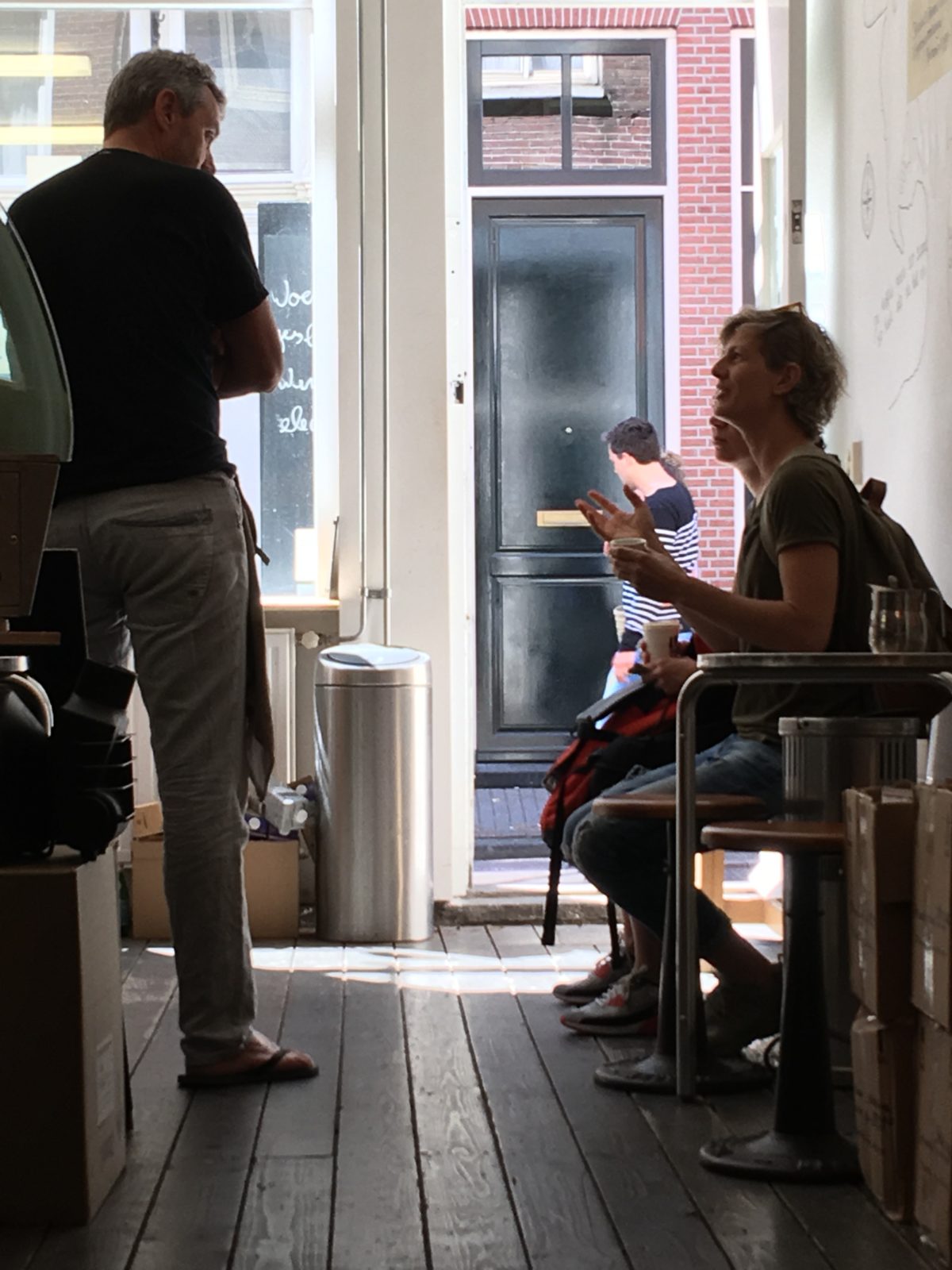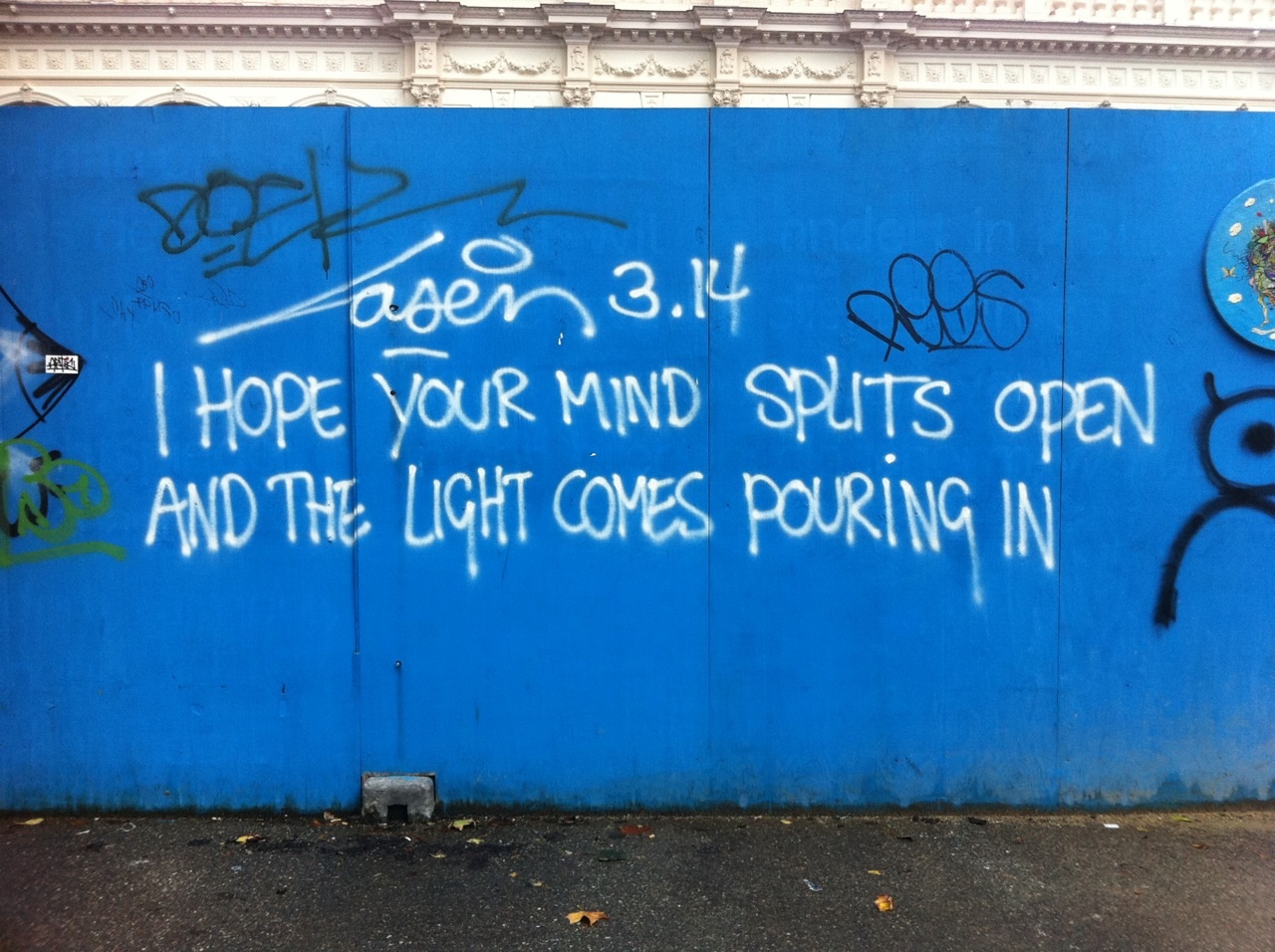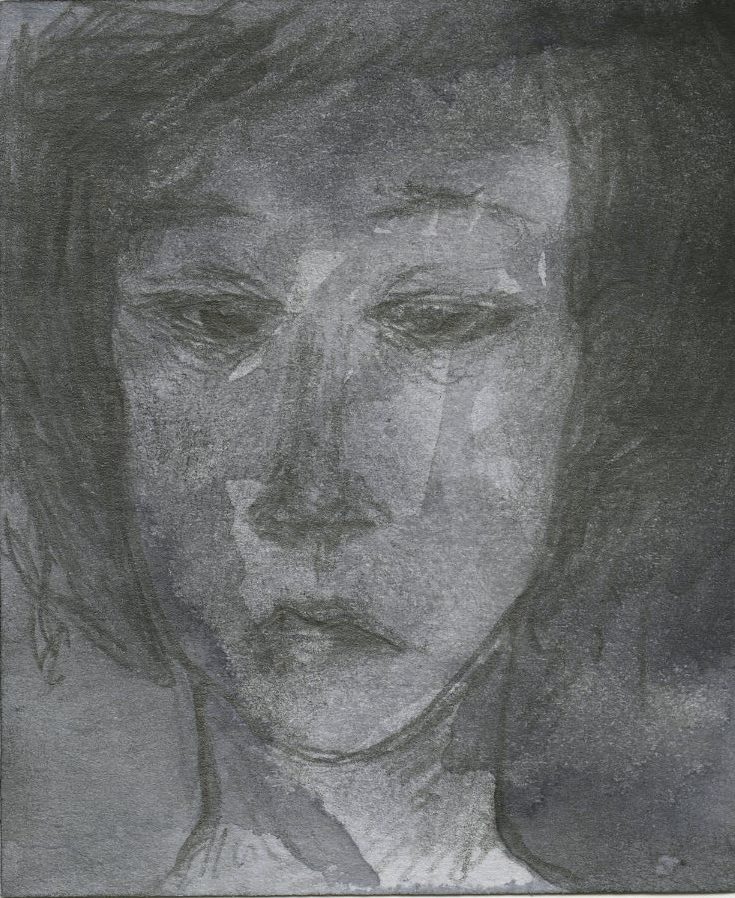Author: tedoned
Uncle Jan? In A Miff?
Uncle Jan (not pictured) is miffed. “Too much talk," he says.
Of Amsterdam’s ten best cups of coffee, the one Bruno makes is surely in the top two. Jan, a regular since Bruno opened up three years ago, would prefer to sit out his early morning, late-life cappuccino in quiet or, at worst, in conversation in his native tongue. Though I am the sole figure who chats up Bruno now with my too much talk, the number from which Jan wishes to hear and so be forced to hear himself over is closer to zero.
Eighty-six, Jan spent last week in Mallorca, diving every day. In his previous life he paid one of Hemingway’s bar tabs. (Hemingway paid it back after publishing The Old Man And The Sea.) When it gets too warm he suggests whiskey on the rocks. All this Bruno knows--and believes true--though he does not know Jan’s last name.
A year ago Jan got sick. Alone. Not young. Not easy.
Bruno posted Jan’s status on the Facebook group of his shop. The regulars took note and took action. A medical student went with Jan to the hospital three times to help him make sense of the forms and procedures, another sat in on consultations. Someone met him at the hospital after surgery with a taxi and others crewed up to make sure Jan had groceries at home as he recuperated.
The village took care of Jan, just as it should, the people did their job because Bruno does his.
(Bruno, fyi, used to do office stuff and is much happier now earning much less.)
As the old man with a legitimate old man gripe about expats like me making too much noise, Jan plays his role with maximal and steady endurance. If today he is in a miff, it is just a joke, since he otherwise never fails to talk with any who join him, speaking in English or, if you like, Sweedish. And his departing smile comes with the same happy effort you see in the stuttered walk that gets him around the hood. He could choose to sit at home or ignore you. But he does neither.
As fine as both Bruno and Jan are, nothing here is unique or unreplicable. They are types. The store and the owner, the place that mills patrons into neighbors, the neighbor who will not get ground down by the system, the system made of connections that depend on something other than impressive resumes or big data or extreme vetting.
Might we teach that? Teach the system we want to see in the world?
Dear Ivy,
The business model of elite-ed squelches learning and leadership.
In opposition to the squelch (and with "Ivy" as a placeholder for "private education") I offer these notes of criticism and counsel.
I offer them with nothing but love and gratitude.
ERM
Dear Teachers: Please, I Beg of Thee
Please,
Dear teachers . . .
I beg of you. Try this tomorrow, or the next day, or sometime . . .
A horizontal piece of paper. Give that to the kids and have them write 'a book.'
The book. A book. The words that went into books . . . 500 years of spreading info and upgrading the status-quo of the static brain. Keystone to community, standard-bearer for time well spent in solitude, 500 years as info source #1 and entertainment central. That's not a bad run.
As a frame, the frame of a book has cred. That's my point.
And a frame? You can imagine anything into a frame. A lesson. A writing.
Write a book every day or four days a week or on some kind of routine. The back cover can be the meta/blurb and the front the title/thesis/fun line. Spin this however works for your crew. Put 253 words or a paragraph or a drawing or five minutes (or fifteen) in the two inside pages.
Churn 'em out, these books, you and your class. 500 years: The idea, the sentence, pounded by key of zinc, pressed to paper with pen or ink.
Let not the screen convince you a thing is made of pixels, however space age the appeal. Give not up the ghost of what you do to those silicon devils.
Let your students think themselves writers only when what they do is tangible and real, like the echo of genius, truth, beauty, and wisdom.
Dear Educators,
Somewhere Coach John Wooden says you should do two kind things each day, and do them anonymously.
If your job--provost, headmaster, teacher--is to design the program, make the schedule work, or navigate the class that moves people forward in life, teach them to do the above too, as best you can. And do the same yourself. And make it fun to do.
And thanks for your work.



